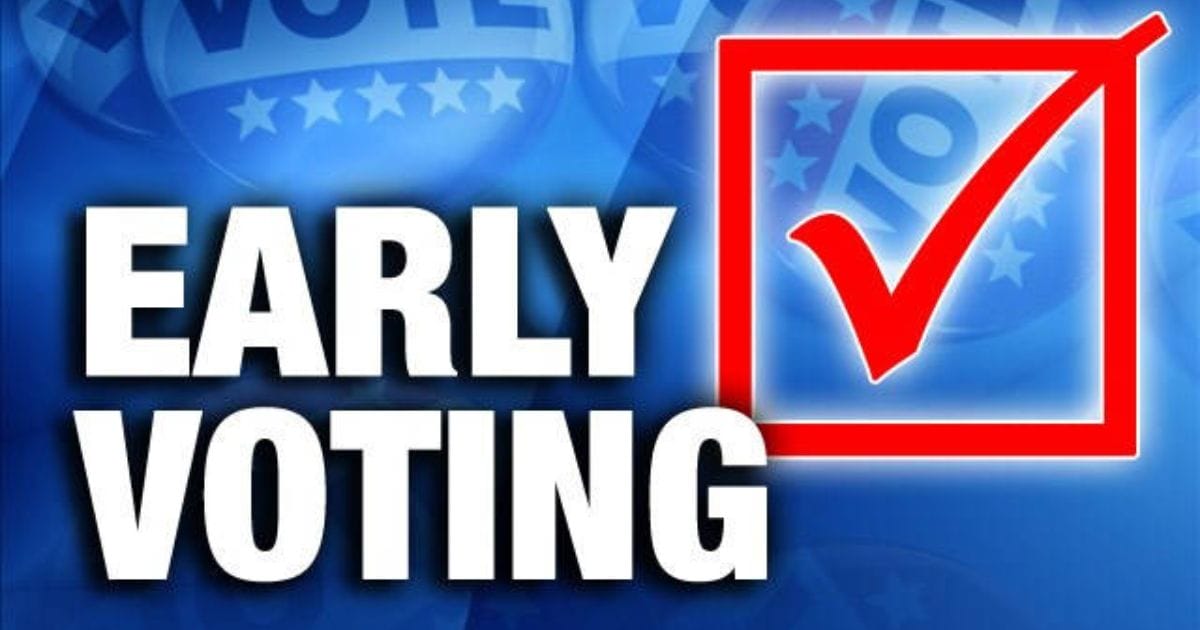The November 8 Election is just over a month away, but Early Voting begins next week.
Voters can cast their ballot on October 7 at the Chicago Board of Elections Supersite at 191 N. Clark St. in the Loop. They can also vote on the sixth floor of the Chicago Board of Elections office at 69 W. Washington.
From October 7 through October 30, these two sites will be open weekdays from 9 a.m. to 6 p.m.; Saturdays from 9 a.m. to 5 p.m.; Sundays from 10 a.m. to 4 p.m.
From October 31 through November 7, these two sites will be open weekdays from 9 a.m. to 7 p.m.; Saturdays from 9 a.m. to 5 p.m.; Sundays from 10 a.m. to 4 p.m.
A Government-issued photo ID is not required to vote, but an ID is helpful if there is a question about the voter’s registration, address, signature, or if there are two voters at the same address with the same names or similar names.
On October 24, Early Voting expands to all 50 Chicago wards. For a list of voting locations go to https://chicagoelections.gov/en/early-voting.html.
From 10 a.m. to 5 p.m. November 2 to November 4, Early Voting will also be available at Chicago State University, 9501 S. King Dr.
On Election Day, the Chicago Board of Elections Supersite (191 N. Clark) will be open from 6 a.m. to 7 p.m. The Board Office will not be open for voting on Election Day.
To vote by mail, residents must apply online to receive a ballot. November 3 is the last day for the Board to receive new Vote By Mail applications.
Many voters will cast their ballots at new precincts during the General Election. Officials have begun mailing out new voter registration cards that show their new precinct location after the Chicago City Council approved a new map of Chicago’s 50 wards last May.
That move reduced the number of precincts in Chicago from 2,069 to 1,290. The reduction prompted Chicago mayoral candidate Willie Wilson to file a federal lawsuit out of concerns that the new precincts may confuse voters who have cast their ballots for years at their old locations.
With low voter turnout a concern, the General Election includes many critical races that will help determine which political party will control the U.S. House and Senate in Washington after the Supreme Court overturned the landmark Roe v. Wade case that gave federal protection to women seeking an abortion.
Republicans need to win just one Senate seat to take control of the Senate and five seats to flip the U.S. House to red. In Florida alone, Republicans are likely to win four seats.
Illinois voters will also cast ballots for important state and local elections. Governor JB Pritzker faces Republican Dan Bailey, who has painted his opponent as one who’s soft on crime.
In the race to replace Congressman Bobby Rush, Democratic candidate Jonathan Jackson is running against Republican Eric Carlson for the U.S. First Congressional District, a seat that has been held by a Black since 1929.
U.S. Congresswoman Lauren Underwood seeks a third term in the 14th District against Republican Scott Gryder of Oswego. U.S. Senator Tammy Duckworth, who seeks a second term, is running against Republican Kathy Salvi.
Illinois Attorney General Kwame Raoul seeks a second term against Republican Thomas DeVore. For Illinois Secretary of State, Alexi Giannoulias seeks to replace retiring incumbent Jesse White in his race against Republican Dan Brady. For Illinois Controller, Susana Mendoza seeks another term against Republican Shannon Teresi.
In local races Cook County Board President Toni Preckwinkle is running to keep her seat against Republican Bob Fioretti. Cook County Clerk Karen Yarbrough faces Republican challenger Tony Peraica. Cook County Tax Assessor Fritz Kaegi, who edged out Kari Steele in the Democratic Primary, faces Nico Tsatsoulis of the Libertarian Party.






